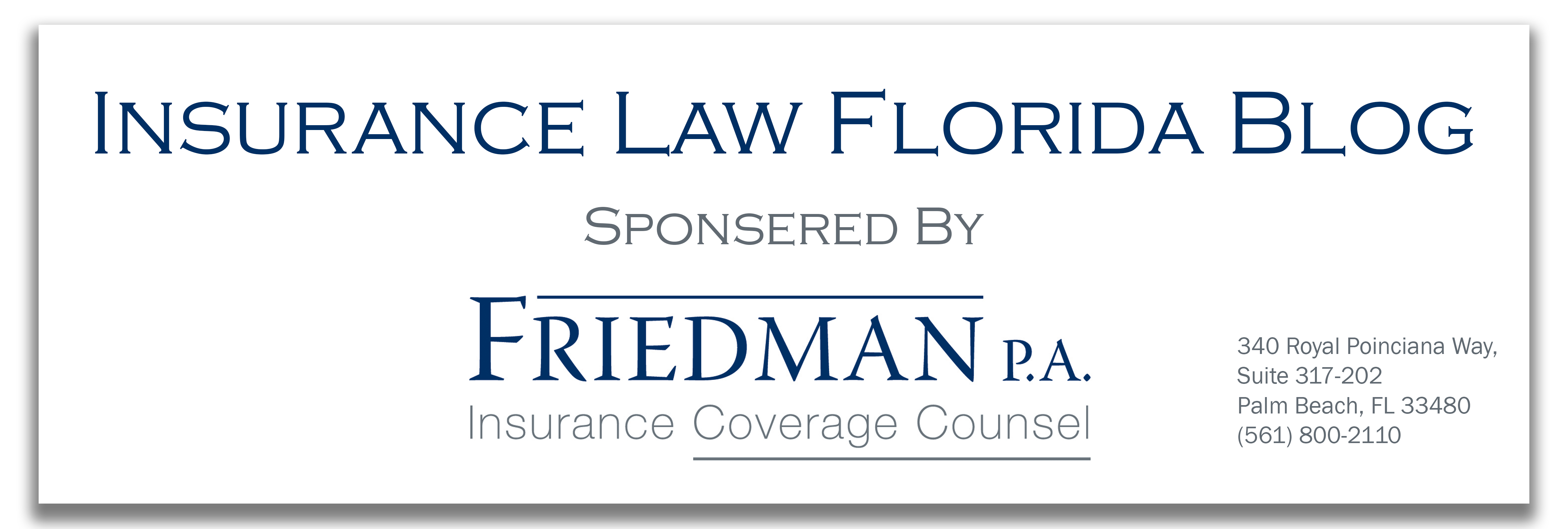Today marks the official start of hurricane season, and what more appropriate way to kick off the season than with a new decision from the Florida Supreme Court involving damage to a Boca Raton condo building from Hurricane Wilma, the last major hurricane to hit Florida. Yesterday’s decision in QBE Insurance Corp. v. Chalfonte Condominium Apartment Assoc., Inc., Case No. SC09-441 (Fla. May 31, 2012) touched on many issues, including relatively esoteric ones such as what happens when a policy’s font size is smaller than allowed under Fla. Stat. Section 627.701(4)(a)? (Answer: nothing). But the main impact of the ruling is that the Florida Supreme Court held that insurance contracts are not subject to the same implied duty of good faith and fair dealing as are all other contracts in Florida. Thus, policyholders who wish to bring bad faith claims in Florida on first-party property claims must do so pursuant to Fla. Stat. Section 624.155, the statutory bad faith provision.
It may seem to be inconsequential whether a bad faith claim can be brought pursuant to the common law or pursuant to 624.155. Either way, Florida does recognize bad faith claims in first-party property cases. But the Chalfonte decision has many important practical implications. First, 624.155 contains certain procedures and limitations that a policyholder must follow before it can bring a bad faith claim. For example, a policyholder must file a Civil Remedy Notice with the Florida Office of Insurance Regulation, and the insurer is granted time to attempt to “cure” the bad faith conduct.
The main impact of Chalfonte, and the reason why the case is significant, is that Florida courts have held that bad faith claims under 624.155 must be bifurcated from the breach of contract action against the insurer. That is, the policyholder must first try the breach of contract claim, win that claim, and then may start all over again in the bad faith action. Florida is in the minority of jurisdictions in this regard, as most jurisdictions allow the bad faith claim to proceed at the same time as the breach of contract claim. It makes sense to try all of the claims together, as the breach of contract and bad faith claims are typically intertwined, and it is a waste of time and money to force the policyholder to litigate essentially the same case twice. Many policyholders give up, even after successfully prosecuting the breach of contract action.
Bifurcation of bad faith claims has another important practical implication. Discovery into the insurer’s bad faith claims handling practices — including discovery of claim files and adjuster notes — is severly restricted in the breach of contract action. Insurers argue that just about every discovery request is a “bad faith” request that must wait for the bad faith phase. This allows insurers to shield information regarding their handling of claims, and prevents juries from hearing about how insurers systematically delay and underpay claims.
But all is not lost. Fortunately, Florida has an excellent fee-shifting statute — 627.428 — which allows successful policyholders to recover back the attorneys fees they must incur to enforce their insurance policies. In the majority of jurisdictions, policyholders must prove that the insurer has acted in bad faith before they can recover their attorneys fees. So, while Florida policyholders may have a hard time prosecuting bad faith claims, policyholders who persevere in their coverage battles can hope to be made whole by recovering what they are entitled to under their policy, and by forcing their insurer to pay their lawyers’ fees.
And then the particularly persistent policyholder can decide whether to battle its insurer once more in a subsequent bad faith claim.
